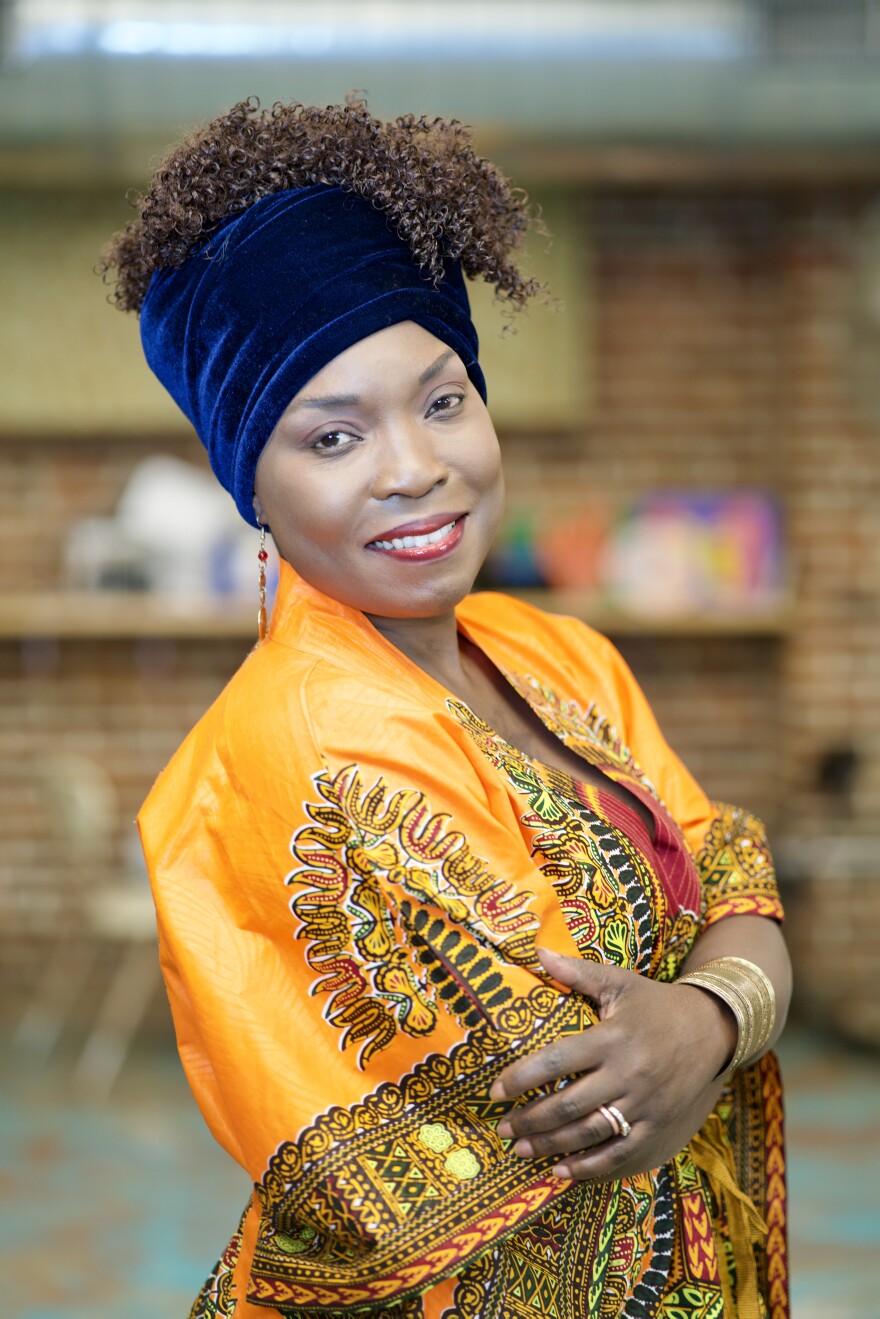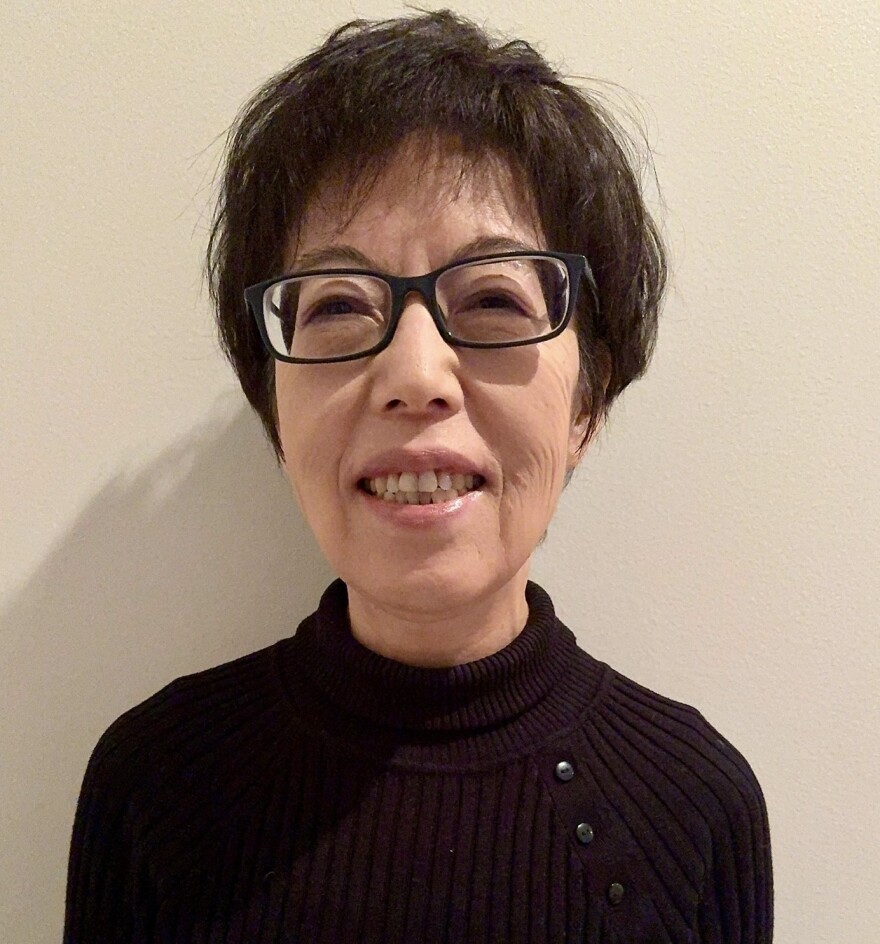During the first dark days of the COVID-19 pandemic, in March 2020, information about staying safe rolled out on a daily and sometimes hourly basis in Vermont. Hard enough to keep up with for English speakers, it was less accessible to Vermonters who spoke different languages.
Burlington-based social worker and videographer Alison Segar says she began worrying for family, friends and clients with limited English and limited reading and writing skills.
“I was really concerned about how they were going to gather information about what seemed to be this completely terrifying virus that was sweeping the world,” she says. “So I really had the idea, like, how can we make, you know, audiovisual kind of messages.”

Segar says she started working from her kitchen, talking over Zoom with community partners to work on messaging and produce COVID-19 safety videos in 10 different languages. Thus the Vermont Language Justice Project (VLJP), initially called the Vermont Multicultural Coronavirus Task Force, was born, with Segar as its director.
“The translators were sending them out to their communities, the school districts were sending just the audio files out through robocall systems,” Segar says.
Local Kenyan American singer-songwriter KeruBo was among those involved in the earliest stages of VLJP. KeruBo is also a caseworker for the Association of Africans Living in Vermont, helping people who arrive as refugees get settled and thrive here.
Part of her work, she says, is disseminating information to the community — like through the 2021 music video, “Chanjo.”
“There were antivaxxers out there who don’t care for, you know, taking the vaccine,” KeruBo says. ”And so I thought, ‘Hey, why don't I make a video, a song music video that would help, you know, help my community.”
In the video, KeruBo is surrounded by dancers as she sings in Swahili, encouraging viewers to get the COVID-19 vaccine to save lives. At one point in the video, KeruBo gets her own COVID-19 shot.
“They saw me actually taking the vaccine, and I didn't suddenly have like five heads or things that people were being told out there,” she says. “They started to feel a little bit comfortable to participate in taking the vaccine.”

That kind of responsive, on-the-ground outreach to refugee and immigrant communities is what Vermont Language Justice Project Director Alison Segar says VLJP did as the pandemic stretched out. And initially, VLJP did this work for free.
Then, Segar says, the Vermont Department of Health realized what they were doing.
“And [when they] knew that we were really kind of doing their job for them, they absolutely stepped in and gave some money,” she says. “So that we could pay our translators for the work that they were doing.”
In 2021, Segar says the VLJP received nearly $330,000 from the Department of Health through a CDC COVID-19 Health Equity grant. Thanks to that money and some additional grants, she says they now have three full-time staffers, and their videos are available in 18 different languages and sometimes American Sign Language.
“We've made over 140 videos in any one language,” Segar says.
All these videos have a combined 227,000-plus views. And they’re no longer just about COVID-19. In addition to covering of-the-moment topics like the solar eclipse or flood safety, they also tackle ongoing, everyday topics — like how to pick up medication from the pharmacy, information about ticks, and tips for how parents can talk with and listen to their kids.
“Each time I send out the video, share with them, and they all get back to me, say, ‘It's really good,’” says Lili Feng, who serves Chinese communities through VLJP. She says there’s a particular need to address language and cultural barriers among the families who operate Chinese restaurants in Vermont.
“A lot of them tell me, ‘Lili, you know, I have eyes, I cannot read. I have a mouth, I cannot talk. I have ears, I don’t understand,’” Feng says.

VLJP translators like Feng are acting as trusted messengers and cultural liaisons to communities that the Vermont Department of Health has struggled to reach on its own. That’s according to Sara Chesbrough, who is the health equity team lead for the Division of Family and Child Health at the health department.
“Everyone needs to stay safe and healthy,” Chesbrough says. “In emergency situations or public health crises, not having that information available to them is inequitable, but also puts lives at risk. So this was really, to me, life and death.”
The challenge, though, is that the major chunk of money the VLJP relies on, that CDC COVID-19 grant, is running out. Segar expects it to dry up by December. And she says the VLJP is looking everywhere for more funding.
Chesbrough, who is the health department’s point of contact for VLJP grant funds, says she hopes programs in the department and across state government, nonprofits and community organizations can chip in.
“I'm not quite sure, you know, how that would look from place to place, but it would be really amazing for them to be able to sustain funding to continue their work,” she says.
The Vermont Language Justice Project’s funding is an open question. But according to testimonials from people working in Vermont’s health, refugee resettlement and equity organizations, the project’s services are vital — and there would be a void without them.
"This was a resource that didn't exist prior to the Vermont Language Justice Project,” says Cheryle Wilcox, the director of mental health collaborations at the Department of Mental Health. “At this point, you know, having things in different languages and interpreting them, like it's not an extra thing. It's something we should be doing.”
Underneath KeruBo’s “Chanjo” YouTube video about the COVID-19 vaccine, there are dozens of comments expressing gratitude. The messages are from Swahili speakers, English speakers and from people in other states who say they work with refugee communities.
“I just think that when people hear their mother tongue first, it's so grounding. It makes them feel like … ‘I'm part of this culture, of this community, too. That I matter, that someone is paying attention to what I'm going through,’” KeruBo says.
She adds that providing information this way works — and that it should be supported.
Have questions, comments or tips? Send us a message.




